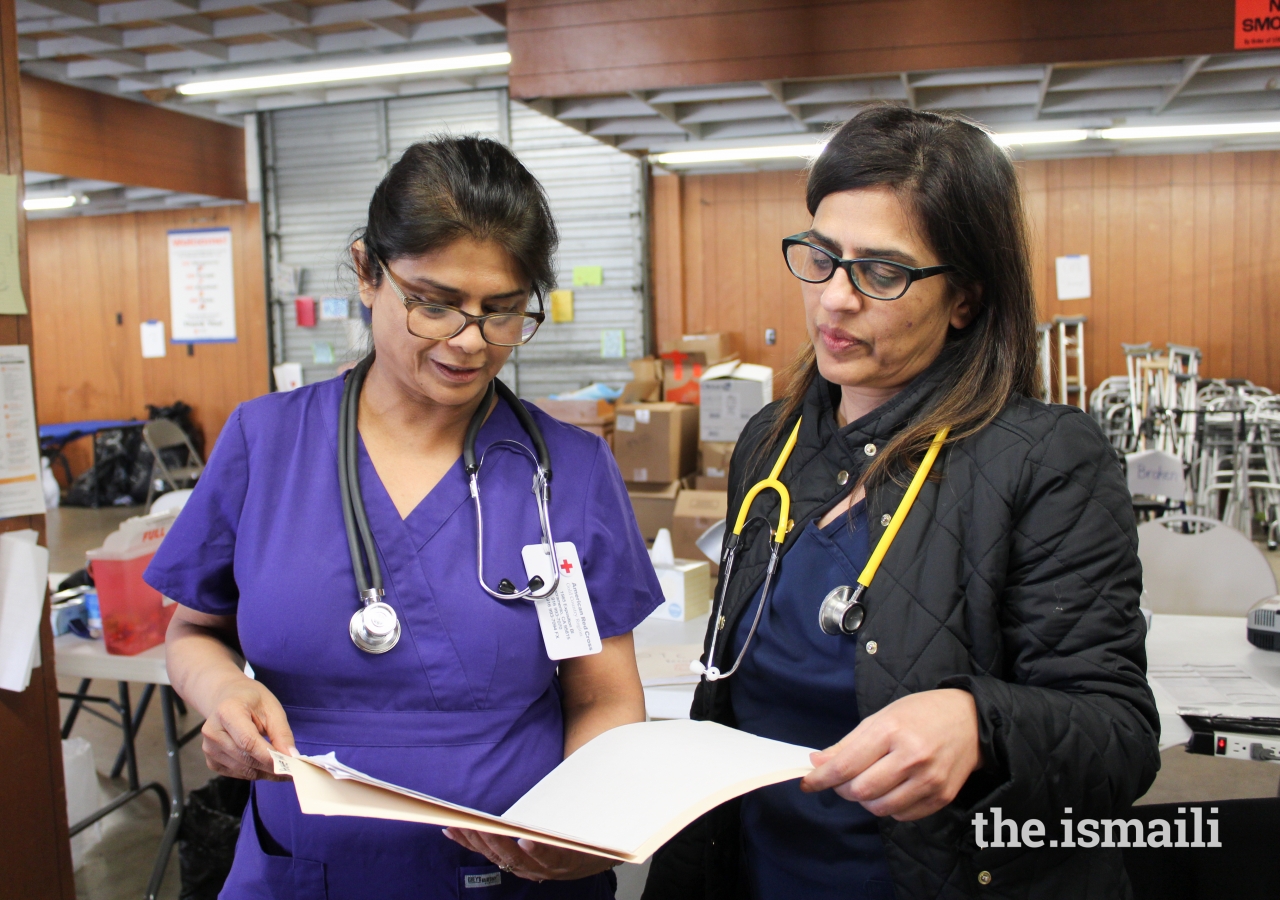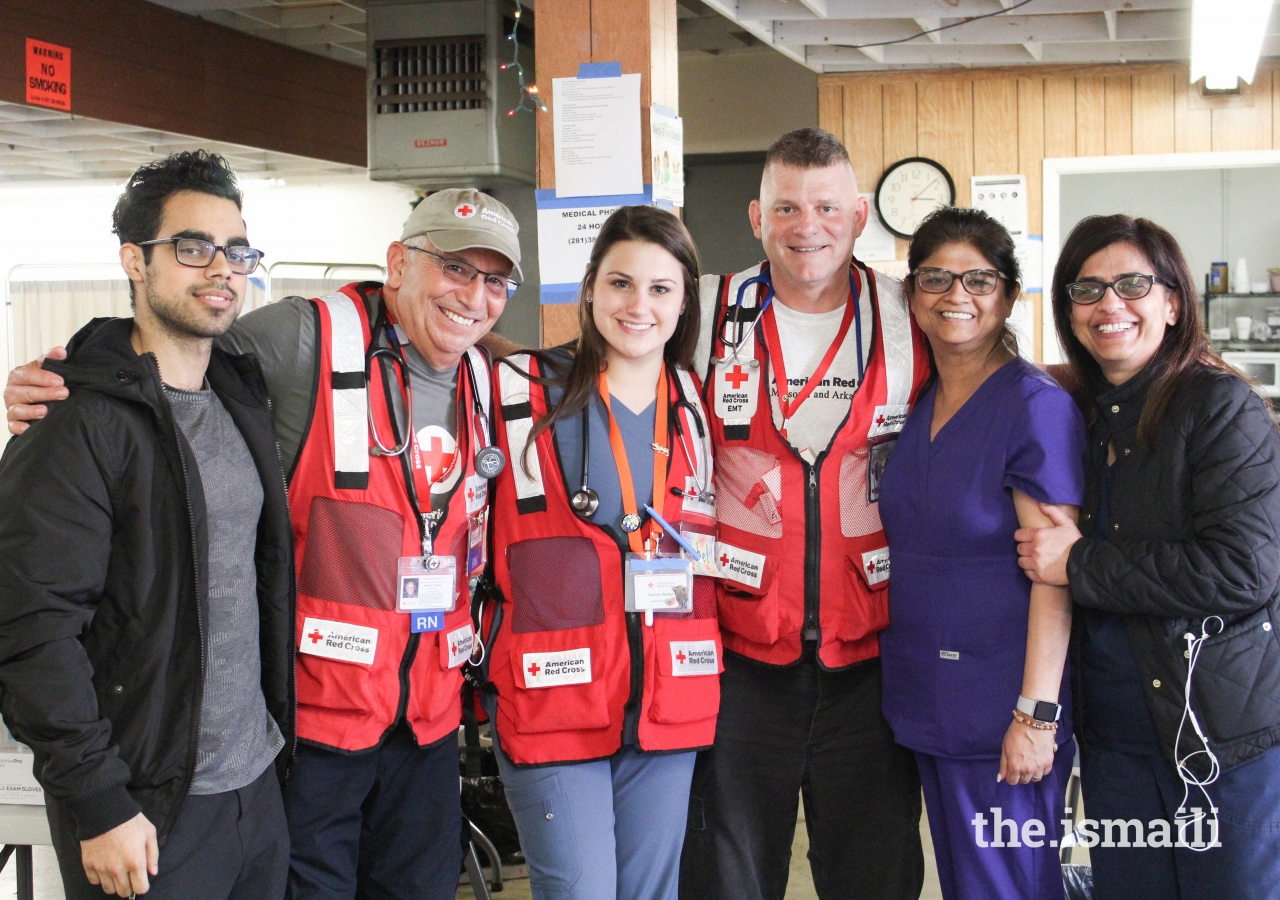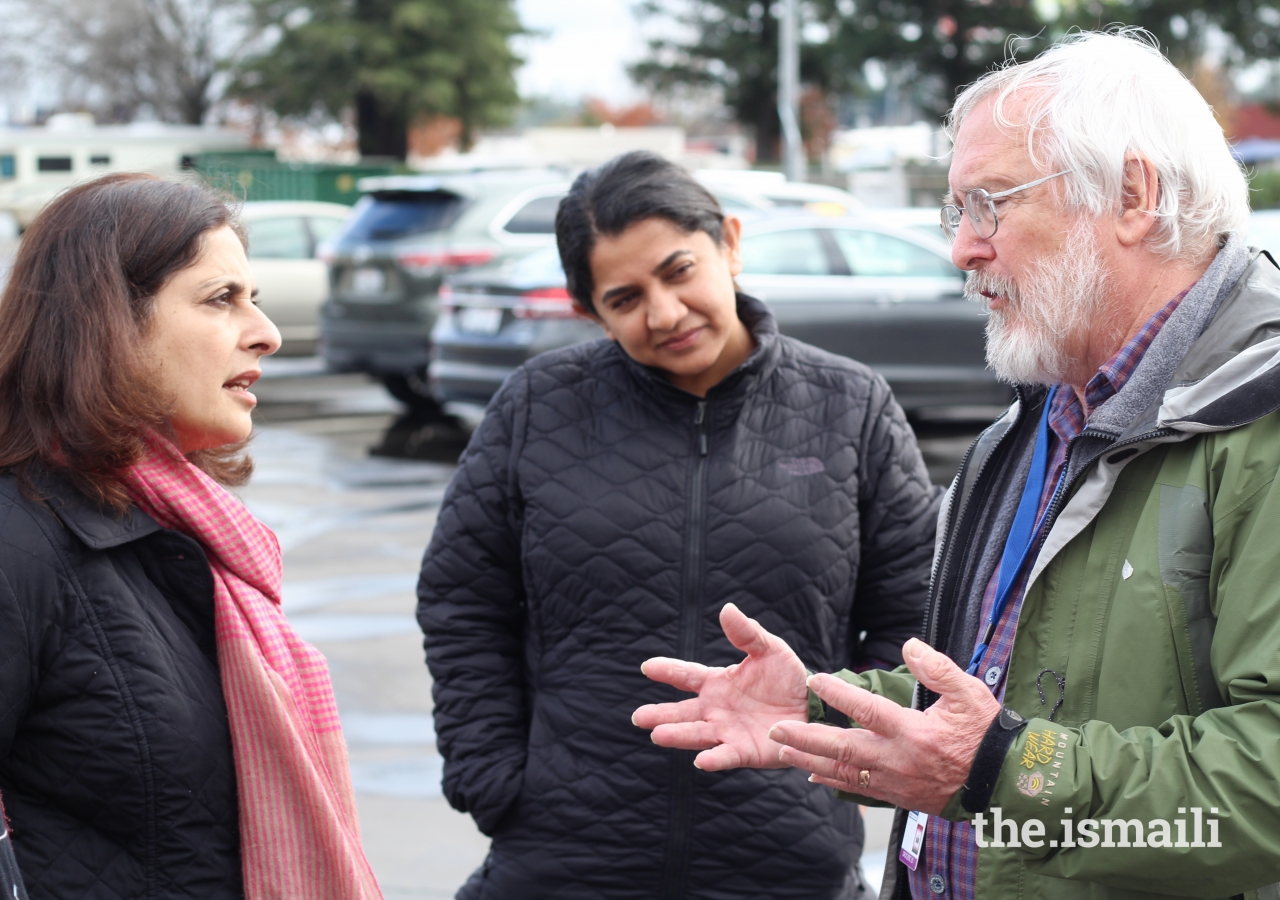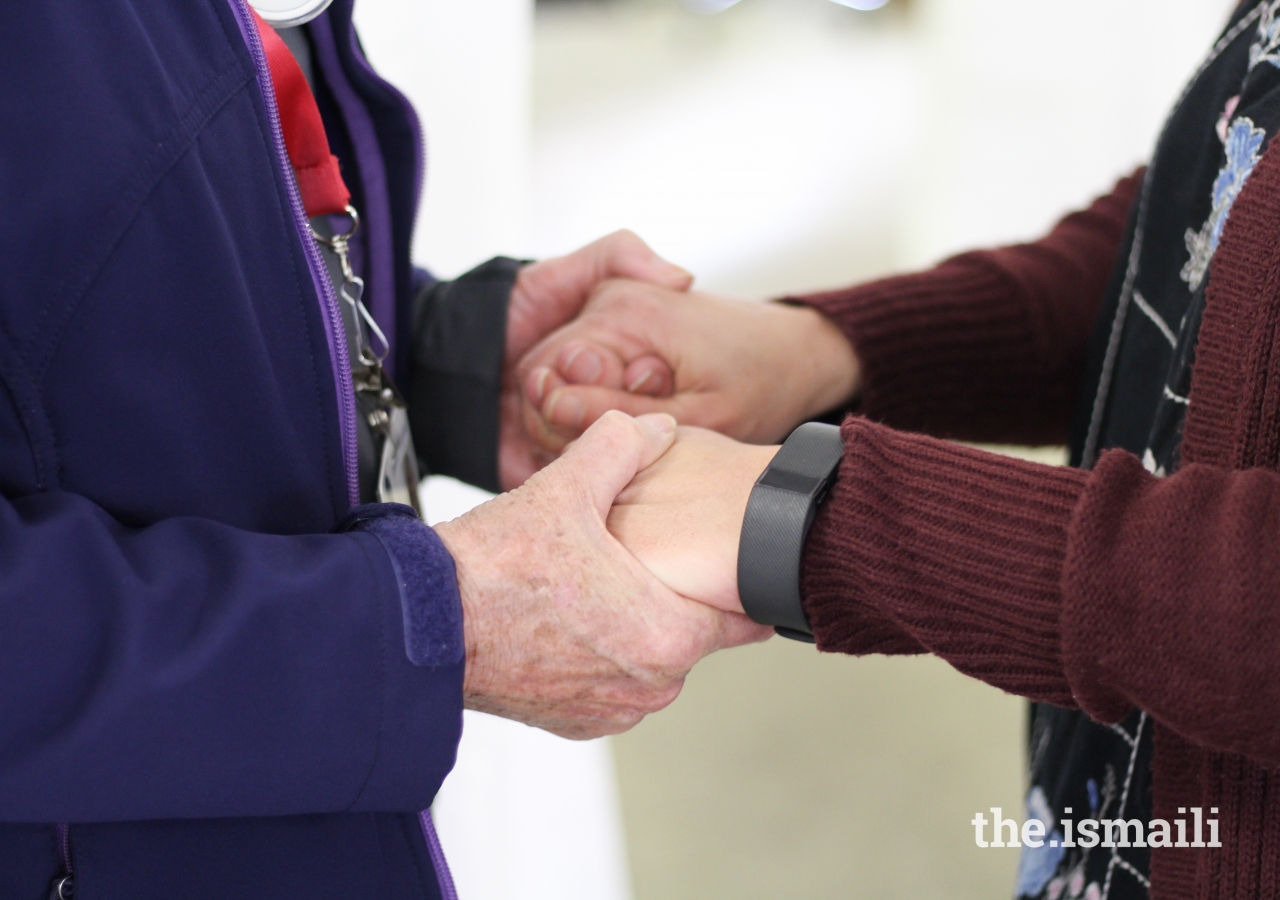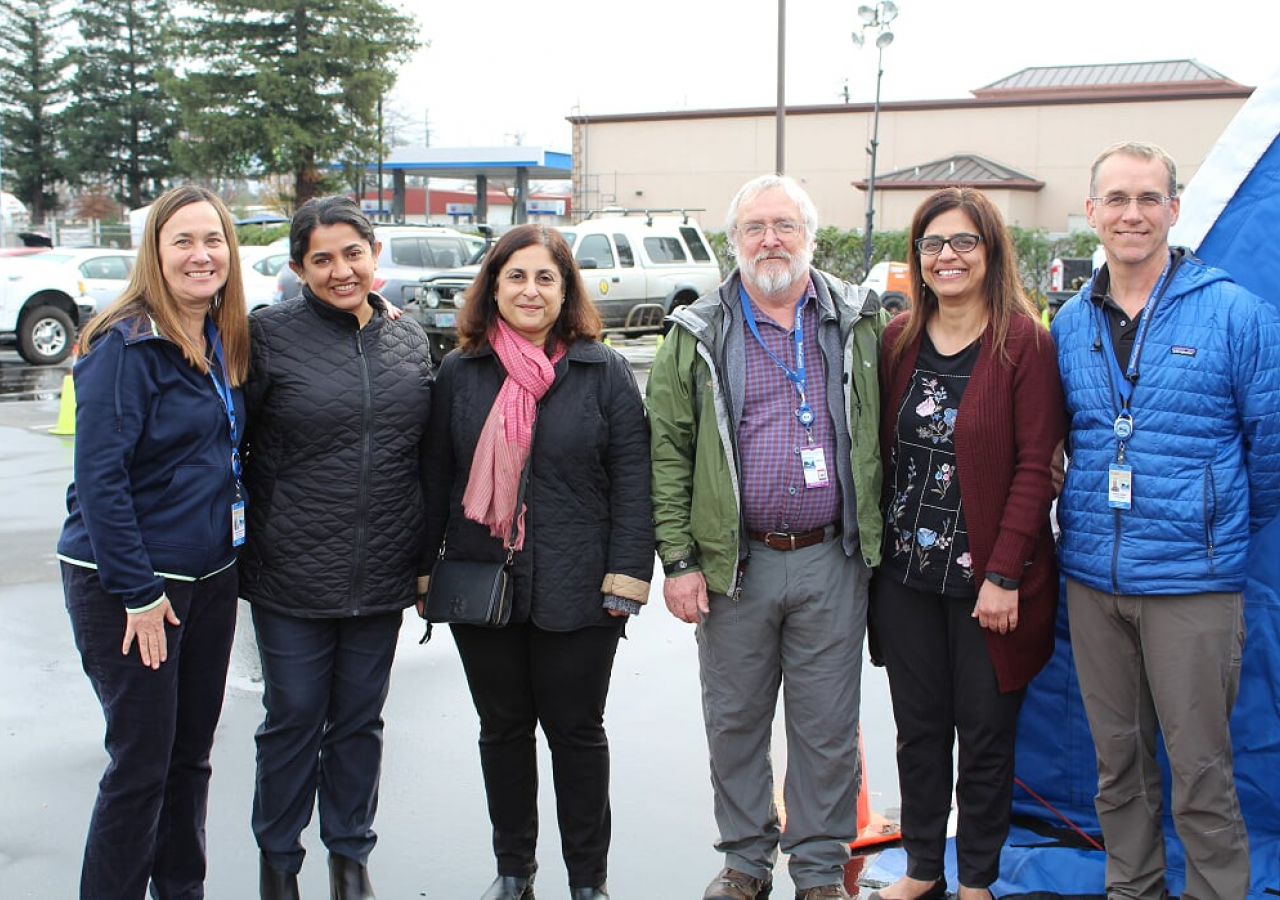The recent Camp Fire in Northern California was the deadliest and most destructive wildfire in California history to date. Ten of thousands of Camp Fire survivors were forced to flee their homes and moved to Red Cross evacuation shelters as Camp Fire ripped through their home, buildings and communities.
Like thousands of others, Mary Jarschke, a registered nurse and stroke coordinator at Oroville Hospital, lost her home and nearly all of her physical belongings, barely escaping with her life during the unmerciful Camp Fire that ripped through the town of Paradise, California, at the end of 2018.
Despite the loss, Mary began volunteering at the Butte County Chico Shelter. But the shelter had taken in over 1,000 individuals, so the need for visiting nurses to ease the fatigue endured by local nurses was crucial.
Karen Baker, California Chief Service Officer for Governor Brown Jr. and lead of California Volunteers, had been a member of the Steering Committee for the Agreement of Cooperation signed by the Imamat and the State of California in 2009. The Ismaili Council for the Western US reached out to her and she was eager to accept assistance. She had recognized the 24 Ismaili volunteers who served 27 shifts during the 2018 Global Action Climate Summit in San Francisco, as greeters, delegate ushers, help desk monitors, and VIP assistants. Ms. Baker had remarked, “We could rely on them at all levels of activity. We wish there were more like them in our team!”
The Aga Khan Health Board partnered with Butte County Department of Health to provide care for individuals in the Chico evacuation shelter with acute and chronic medical conditions. The Board contacted Ismaili health professionals, and 25 volunteers including 14 registered nurses, 5 nurse practitioners, 5 logistic coordinators and one physician from the nearby Bay Area and as far as Chicago and Dallas, stepped forward to provide assistance. Altogether, Ismaili health professionals committed over 250 hours of service.
However, the journey was not one of ease. In fact, Maleka Virani said that the 3 hour drive to Chico Shelter from San Jose was prolonged by dense fog making it difficult to see, but her will to serve overcame any difficulties.
“It means so much to have nurses come from outside our community, and from so far away, to volunteer their time and provide support,” Jarschke said of the Ismaili nurses who arrived to assist at the Butte County Chico Shelter.
Volunteering my time here feels like I am helping my own community,” said Amina Huda, Health Board Chair, one of the first volunteers to visit the shelter. The relationship between the Aga Khan Health Board and the Department of Public Health developed into genuine appreciation and sincere admiration for one another. Monica Soderstrom embraced each Aga Khan Council volunteer as they arrived and departed, and in particular, Laila Chagani, an Aga Khan University(AKU) who traveled to Chico on four different occasions from San Jose.
Shamsah Malik, also an AKU Nursing Program graduate from Los Angeles remarked, “The Butte County Public Health Department and Red Cross have done a fabulous job offering support to this community. I was amazed at the range of services being offered to the residents. Many employees of the Health Department were rerouted to support this shelter and had to be taken away from their normal duties. On one day, I volunteered with an epidemiologist, who was managing the logistics of the camp and helped bring food to residents that were isolated due to an infection."
“This community really has been traumatized, and the fires have affected the outlook of the community. It touches everything,” says Bruce Bailey, founder of AmeriCorps St. Louis. Bruce has served at many natural disaster sites, including Hurricane Katrina. He assessed the widespread devastation caused by the wildfire. 55,000 citizens evacuated including the 28,000 directly within the fire zone, and 90 percent of the structures were lost, including 500 businesses.
“When you have outside energy come in like this, it’s like a lighthouse. It helps inspire hope in the survivors so they see the world hasn’t forgotten about them and are here to help,” Bruce explained.
Munira Valani, an AKU alumna, was thankful for the fact that she had an opportunity to volunteer her time at the shelter saying, “It was an unforgettable experience. I still see the faces of those people who lost their homes with nothing remaining in total darkness and despair.”
Hamida Khan of Los Angeles was humbled to be able to serve the victims of the wildfire. She mentioned that as AKDN projects worldwide serve all communities regardless of faith, race, or gender, so do Ismaili volunteers. Like so many of the AKU nurses that served at the shelter, Hamida found her interactions with the survivors of the wildfire and other volunteers to be rewarding and found the survivors’ resolve to be inspirational. “I came to give my time to assist those in need,” she notes, “but I realize I left with so much more.”
“Disaster can take away everything a person has worked for during their lifetime,” reflected Salima Pirani, a former AKU nurse who traveled from Dallas. She credited her training for her ability to “assess and stabilize” medical emergencies. And Amyna Hemani, also a former AKU nurse from Chicago, remembers serving local communities near AKU, and providing basic care to individuals living in poverty. “The goal was always to improve the quality of life of those around us,” she explained.
“It’s one thing to give money, but it is more valuable to be here and have a personal relationship. It’s important in the healing process,” Bruce says about the kind of support that survivors of the wildfire need. Ismaili Health Professionals will continue to provide medical and logistical support as long as the shelter remains open.
“Thank you again for all you are doing to help staff the shelter. You and all the Aga Khan Council volunteers have been a tremendous help, and I really can’t thank you enough! Your nurses wanted to be here. They came with such open hearts. It was fabulous.” -Monica Soderstrom, Nursing Director for the Butte County Public Health Department, California.

